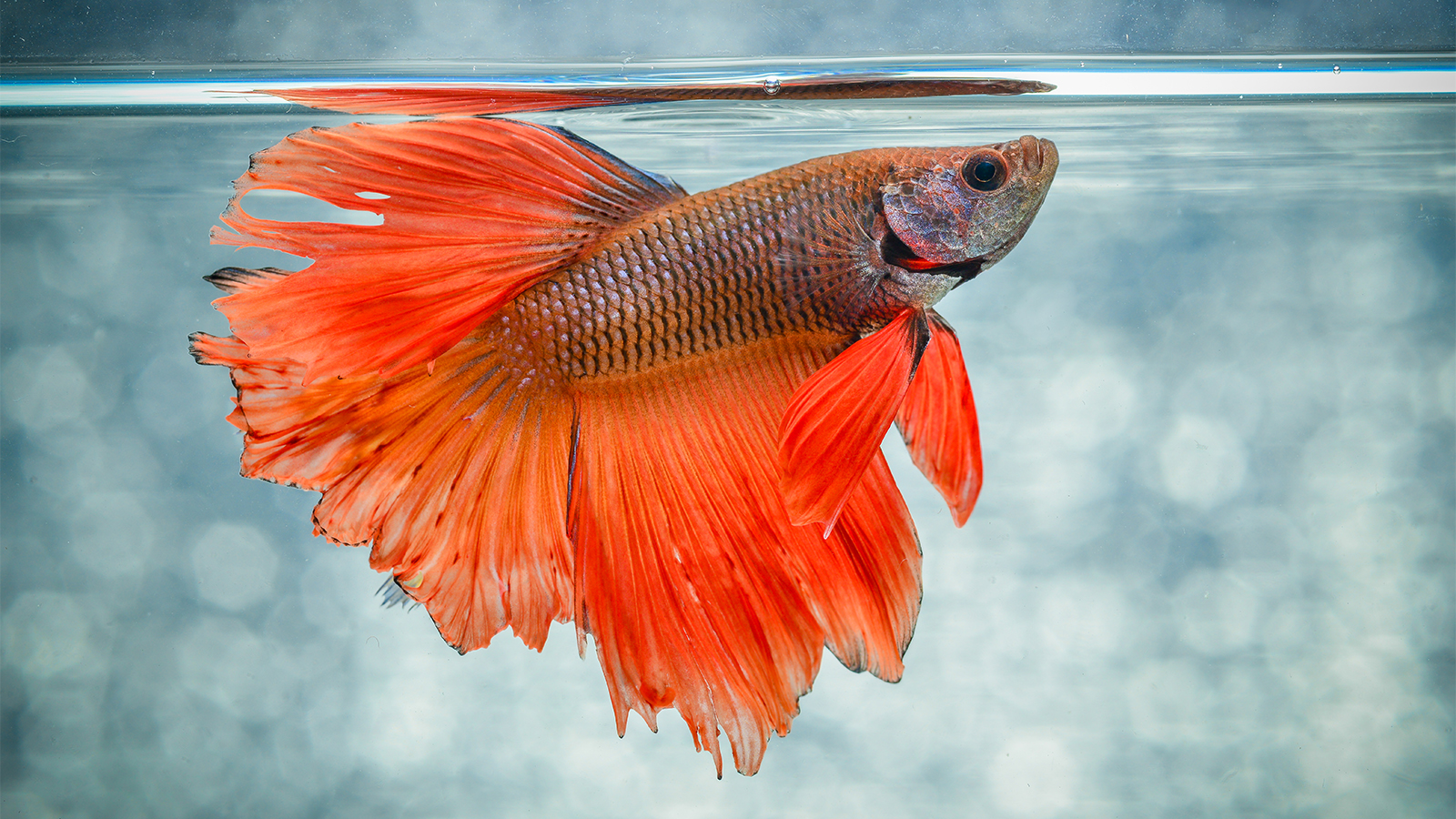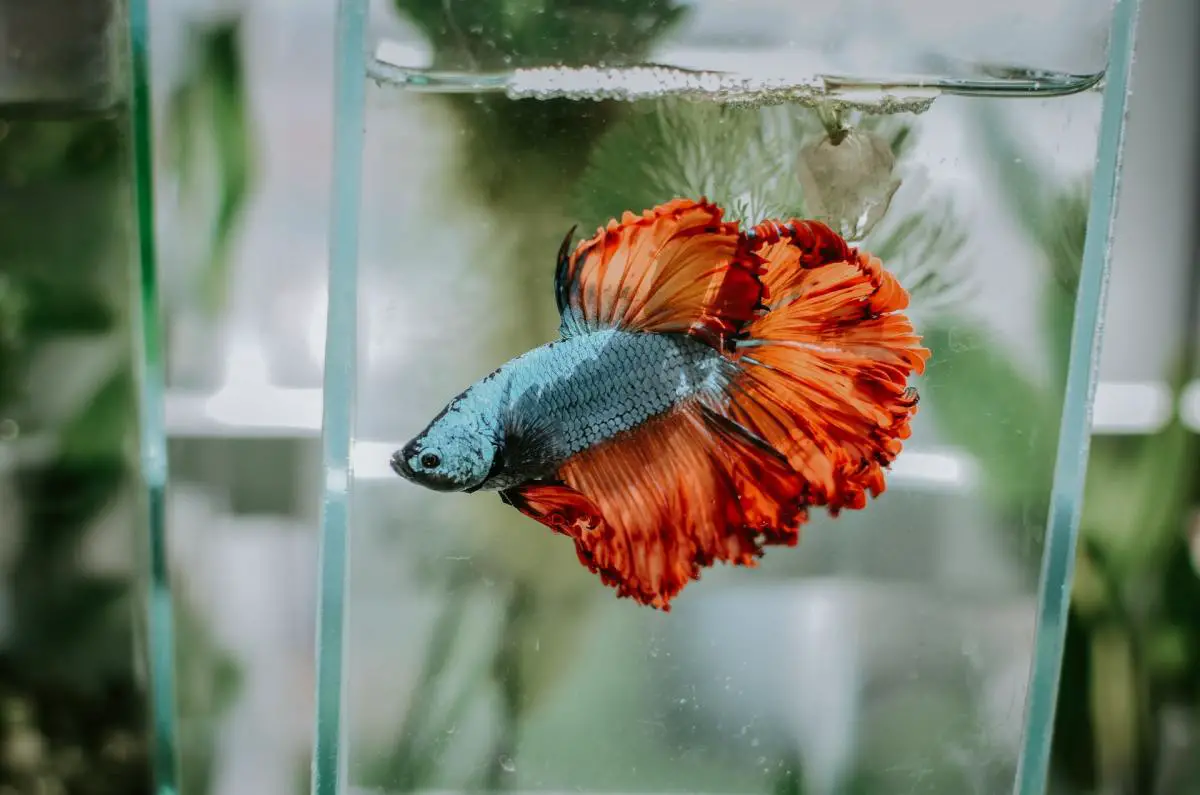Originally posted on May 23, 2023 @ 8:00 pm
Last Updated on 3 days by admin
Betta fish are one of the most popular aquarium fish among pet lovers. They are known for their vibrant colors, long fins, and unique personalities. However, there is a common myth that betta fish do not require oxygen to survive.
This myth has been circulating for years, causing confusion among betta fish owners. In this article, we will explore the truth behind this myth and provide you with the facts you need to properly care for your betta fish. So, let’s dive in and discover the truth about betta fish and oxygen!

Betta Fish No Need Oxygen: Myth or Fact?
Betta fish, also known as Siamese fighting fish, are popular pets known for their vibrant colors and feisty personalities. As with any pet, proper care and attention are essential to keep them healthy and happy. One of the most common myths about betta fish is that they do not require oxygen to survive. But is this really true?
Myth: Betta Fish Do Not Need Oxygen
Contrary to popular belief, betta fish do require oxygen to survive. Like all fish, they need to be able to breathe in oxygen and expel carbon dioxide to stay alive. In the wild, betta fish can obtain oxygen from the air above the water’s surface, but in an aquarium, they rely on the dissolved oxygen in the water.
Without enough oxygen, betta fish can suffer from a range of health issues, including lethargy, fin rot, and even death. It is important to ensure that your betta fish aquarium is properly oxygenated to prevent these problems.
How to Provide Oxygen for Your Betta Fish
There are several ways to provide oxygen for your betta fish, including:
- Air pumps
- Live plants
- Filtration systems
Air pumps are an easy and effective way to add oxygen to your betta fish’s aquarium. These devices use a motor to pump air through a tube and into the water, creating bubbles that help to oxygenate the water. Live plants can also help to oxygenate the water by releasing oxygen during photosynthesis. Finally, filtration systems can help to remove harmful substances from the water and increase oxygen levels.
The Benefits of Proper Oxygenation
Proper oxygenation is essential for the health and well-being of your betta fish. Some of the benefits of ensuring that your aquarium is properly oxygenated include:
- Increased energy and activity levels
- Reduced risk of disease and illness
- Improved water quality
- Enhanced coloration and vibrancy
Fact: Betta Fish Can Breathe Air
While betta fish do require oxygen to survive, they also have a unique adaptation that allows them to breathe air. Betta fish have a labyrinth organ, which is a specialized structure that allows them to extract oxygen from the air. This adaptation allows betta fish to survive in oxygen-poor environments and even make short trips over land in search of new water sources.
The Importance of Water Quality
While betta fish can breathe air, it is still important to ensure that the water in their aquarium is properly oxygenated and of high quality. Poor water quality can lead to a range of health issues, including fin rot, fungal infections, and even death. Regular water changes and proper filtration can help to maintain optimal water quality for your betta fish.
Betta Fish vs. Other Fish
Betta fish have unique needs compared to other fish species. They require warm water temperatures, frequent feeding, and proper oxygenation to thrive. Additionally, male betta fish are territorial and should not be kept with other male bettas or other fish that resemble bettas. Female betta fish can be kept together in groups, but it is important to provide adequate space and hiding places to prevent aggression.
Conclusion
In conclusion, the myth that betta fish do not need oxygen is just that – a myth. These colorful and fascinating fish require proper oxygenation to stay healthy and happy. By providing your betta fish with a well-oxygenated and high-quality aquarium, you can help to ensure that they live long and fulfilling lives.
Frequently Asked Questions
In this section, we will address some common questions and concerns about betta fish and their oxygen requirements.
Is it true that betta fish don’t need oxygen?
No, this is a myth. All living organisms, including betta fish, require oxygen to survive. Without oxygen, betta fish will suffocate and eventually die. While it is true that betta fish can survive in low-oxygen environments for short periods of time, this does not mean they don’t need oxygen at all. It is important to ensure that your betta fish has access to clean, oxygen-rich water at all times.
What happens if my betta fish doesn’t get enough oxygen?
If your betta fish doesn’t get enough oxygen, it can lead to a variety of health problems. In the short term, your fish may become lethargic and lose its appetite. Over time, a lack of oxygen can lead to organ damage and even death. Signs that your betta fish may not be getting enough oxygen include gasping for air at the water’s surface, staying near the filter or air stone, and clamped fins.
To ensure your betta fish is getting enough oxygen, make sure the water is well-aerated and clean. You may also consider adding an air stone or filter to increase oxygen levels in the aquarium.
Can betta fish survive in a bowl without a filter or air stone?
While betta fish can survive in a bowl without a filter or air stone, it is not recommended. Without proper filtration and aeration, the water in the bowl can quickly become stagnant and oxygen-deprived. This can lead to a variety of health problems for your fish, including fin rot, bacterial infections, and even death. To ensure the health and well-being of your betta fish, it is recommended to provide a properly sized aquarium with a filter and air stone.
If you choose to keep your betta fish in a bowl, make sure to change the water frequently and provide a well-planted environment to help oxygenate the water.
What can I do to increase oxygen levels in my betta fish’s aquarium?
There are several things you can do to increase oxygen levels in your betta fish’s aquarium. First, make sure the water is clean and well-aerated. Adding an air stone or filter can help to increase oxygen levels in the water. You may also consider adding live plants to your aquarium, as they can help to oxygenate the water through photosynthesis.
If your betta fish is still struggling to get enough oxygen, you may need to increase the surface area of the water. This can be done by adding a bubbler or air stone, or by simply lowering the water level in the aquarium to increase the surface area.
What are some signs that my betta fish is getting enough oxygen?
If your betta fish is getting enough oxygen, it should be active and alert, with its fins and gills moving smoothly. It should not be gasping for air at the surface of the water or staying near the filter or air stone. A healthy betta fish will also have bright, vibrant colors and a healthy appetite. If you notice any changes in your betta fish’s behavior or appearance, it may be a sign that it is not getting enough oxygen and you should take action to improve the aquarium environment.

Don’t Fall For These 10 Betta MYTHS!
In conclusion, the myth that betta fish do not require oxygen is just that – a myth. While bettas are able to survive in low oxygen environments, they still need access to oxygen in order to thrive and be healthy.
It is important for betta fish owners to provide proper filtration and aeration for their tanks, as well as regularly checking water quality to ensure their fish are getting the oxygen they need. Neglecting these responsibilities can lead to health problems and even death for these beautiful and beloved creatures.
So next time you hear someone claim that betta fish don’t need oxygen, remember that it’s simply not true. Let’s give our betta friends the best possible care and environment to ensure they live happy and healthy lives.
